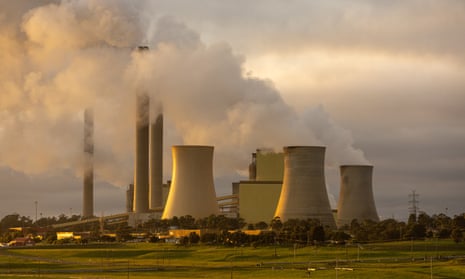Good morning!
Last night’s stroke of midnight brought an end to the former Morrison government’s halving of the fuel excise.
But you shouldn’t expect to see fuel prices jump immediately, with the treasurer, Jim Chalmers, saying it would take a few days for higher prices to flow through as retailers would first need to get through their supplies of discounted fuel.
The consumer watchdog has warned service stations that it will be watching for outlets that pass on the increase to customers before running down supplies of fuel that was not fully taxed.
Optus customers continue to brace for news of whether their data has been compromised, with the telco contacting customers to tell them whether they are among the 37,000 people whose Medicare numbers were stolen.
While 22,000 of those Medicare numbers are expired, almost 15,000 are active.
Optus says it will contact those with active card details compromised within 24 hours and those whose had expired cards will be contacted in the coming days.
The minister for home affairs, Clare O’Neil, has told Channel Nine the massive Optus breach is a “wake-up call for everybody” when it comes to increasing the country’s cybersecurity.
In weather news, hail and heavy rain have hit Sydney’s west and NSW’s mid-north coast. The ABC reports that the wild weather has caused leaking roofs and flash flooding.
Let’s kick off!
Key events
Queensland seeking partnerships from the federal government in renewable plan
Queensland premier Annastacia Palaszczuk was asked to clarify for how long will the state keep exporting coal:
There’s still going to be countries that need our coal and, of course, the metallurgical coal is needed for steel production. Let’s be clear about that. Until there’s alternative to manufacturing steel, the world will still need metallurgical coal.
However, Palaszczuk said there is increasing international demand for renewable energy, as other countries aim to meet their own national targets.
She said a delegation from some of the largest companies in South Korea are requiring 20% of hydrogen into their coal-fired power stations, and are now making agreements with the Queensland government to supply that hydrogen.
As for where the money from the state’s transformation will come from, the premier said she was already in talks with the prime minister interested in the hydro dam.
The plan is $62bn. We have a $6 billion down payment on that… we’ve already got $11bn worth of private investment coming in. But there will be even more coming in well. So roughly it will be around, over $30bn between $30 and $40bn we’re providing but we’re seeking partnerships from the federal government.
Palaszczuk defends renewable energy plan, saying climate effects are already happening in Queensland
Queensland’s premier, Annastacia Palaszczuk, spoke to ABC News Breakfast this morning following her government’s pledge to end its reliance on coal by 2035.
Responding to concerns raised by the Queensland Resources Council around blackouts and the energy prices in Europe, Palaszczuk said:
Well, in Europe, of course, there’s a lot of reliance on gas coming in from the Ukraine and parts of Russia, is my understanding.
But what we’re doing here very clearly is [ensuring] that the hydro dams get built. And then, as the hydro dams come online, that’s when you start phasing down the reliance on coal-fired power stations.
The premier reflected on the importance of the plan in light of her recent visit to the Torres Strait Islands who are facing more immediate threats from rising sea levels:
We’re building sea walls as we speak. People are having to build their houses on 7-to-12-foot stilts above the ground because of the water coming underneath. Ancestral graves that the ABC has reported on are being washed away. This is happening in Queensland. It’s not just an island on the Pacific ocean. It is happening to Queenslanders. To Australians. And we all have a duty to look after one another.
Peter Hannam
AGL expected to bring closure of Loy Yang A power station forward a decade
Australia’s biggest electricity generator, AGL Energy, will shortly release its strategy update to the market.
The highlight, we’re expecting, is the confirmation that the company will accelerate the closure of its Loy Yang A coal-fired power station in Victoria by a decade to 2035.
Here’s what we know so far:
The news comes after Victoria earlier this week announced plans to add much more storage by 2035 – no coincidence.
And Queensland also unveiled yesterday a $62bn plan by 2035 to speed up the decarbonisation of its power sector.
As Bruce Mountain, head of the Victoria Energy Policy Centre, puts it:
What a week for energy policy, it does not get bigger than this.
More to come soon on AGL.


Luke Henriques-Gomes
Almost a third of children experiencing domestic violence live with a disability, research shows
About 30% of children who experience domestic violence live with a disability, new research has estimated.
A report by Australia’s National Research Organisation for Women’s Safety (Anrows), to be released today, analysed administrative data covering a period of about two decades to make the finding.
The report said children with disability were also far more likely than children without disability to have contact with the child protection system and to enter out-of-home care.
And they were twice as likely to have a mother hospitalised due to a domestic/family violence assault (8% compared to 4%), according to the data from Western Australia.
Researchers also interviewed dozens of children and young people, parents and service providers, with participants telling of being on support service waitlists for up to a year, having trouble getting support from government agencies, and fearing they would be harmed during a violent parent’s access visits.
Lead researcher Sally Robinson, of Flinders University, said:
In our study, children and their families had unmet needs for support [and] experienced unresponsive service systems and intersecting disadvantage relating to violence, poverty, housing crisis and discrimination. Their complex, compounding circumstances often included disability, but disability did not drive domestic and family violence.
The Anrows chief executive, Padma Raman, said:
Children’s access to disability and domestic and family violence support must not rely on their family and practitioners’ ability to continually negotiate barriers on their behalf.
A study from the NSW Bureau of Crime Statistics and Research last week found people living with disability were more than twice as likely to be the victims of violent crimes compared to the total population.
The Albanese government is expected to release the National Plan to End Violence against Women and Children next month.
Government seeking immediate ‘urgent reforms’ to cybersecurity
The attorney general, Mark Dreyfus, said the massive Optus breach has also meant the government will be looking to make “more urgent reforms straight away”.
He said parliament is considering strengthening the laws, particularly the Privacy Act, to possibly increase the penalties and possibly increase the precautions that have to be taken by any company storing data.
On the government request that Optus cover passport costs for those impacted:
“we’re expecting continuing co-operation from Optus to make sure any damage flowing from this massive data breach is kept to a minimum”
— RN Breakfast (@RNBreakfast) September 28, 2022
National integrity commission could get off the ground mid-next year
Dreyfus says he hopes to have the legislation passed by the end of the year and the commission set up by the middle of 2023.
Attorney general probed on national integrity commission’s inquiry process
This morning Mark Dreyfus is the government minister doing the media rounds after introducing the national anti-corruption commission legislation into the lower house yesterday. He’s now speaking to ABC Radio.
The details of the highly anticipated laws are now available, which raises more questions around what might constitute the “exceptional circumstances” for the national anti-corruption commission to hold public hearings.
Dreyfus says it will be a matter for the independent commissioner to decide whether it’s right to hold a public hearing, such as in instances of “serious or systemic corruption that needs to be exposed”.
I’d be pointing to the experience of the anti-corruption commissions of which we have one in every state and territory. Mostly they have held their hearings in private, sometimes they hold hearings in public – our model provides for those hearings to be in public when the commission determines it.
Did the idea of exceptional circumstances for public hearings enter the frame when you began talking to the Coalition?
“It’s not a new idea -” – @MarkDreyfusKCMP
But was it to meet the coalitions concerns? –@PatsKarvelas
(PART 1)
— RN Breakfast (@RNBreakfast) September 28, 2022
“we’ve had a whole range of concerns expressed to us .. i’m not going to go through whose idea was which but I can say there’s been incredibly high levels of co-operation and participation across parliament”
(PART 2)
— RN Breakfast (@RNBreakfast) September 28, 2022
Optus shouldn’t have left out Medicare in initial notification of breach, attorney general says
Of course, when Optus’s massive data breach was revealed, the telco mentioned that identity documents like driver’s licences and passports had been compromised, but left out the pretty important detail of Medicare cards being on that list too.
Last night Optus revealed 37,000 Medicare details were compromised – 22,000 of those expired, almost 15,000 active.
Is Mark Dreyfus concerned there could still be more information about what has been hacked?
Any company that has had a data breach like this is obliged, where there’s serious harm, to notify the Privacy Commissioner and notify their customers. Regrettably, Optus left out of the notification initially that some Medicare numbers, in addition to passport numbers and driver’s licence numbers, were included in the data breach. That shouldn’t have happened.
It’s really important that there be notification because it’s only if there’s notification that you can start to take the appropriate steps to guard against the consequences of a data breach like this.
Again, one of the things we’ll be looking at is whether or not the Privacy Act provisions that include that data breach notification requirement need to be toughened.
Attorney general says toughening cybersecurity laws a possibility
Is a cybersecurity overhaul from the federal government on the cards?
The attorney general, Mark Dreyfus, told ABC News Breakfast what that could look like with details of the government’s response to the Optus data breach:
We’ve been working very hard for a week [after] the shocking details of this massive data breach were revealed. Rightly millions and millions of Australians, past and former Optus customers, are very worried about what’s happened.
We’ve had the treasurer working with banks and financial institutions, we’ve got the minister for communications, the minister for home affairs, and me, because I’m responsible for the Privacy Act, we’ve all been working with Optus and we’ve been working with each other. The Australian federal police has been working with the FBI to try and track down the perpetrators.
What we can do straight away is to try and put arrangements in place that Optus can share the data with banks and financial institutions so that the banks and financial institutions can take precautions to protect those Optus customers whose data has been stolen.
What we can also do, and this what is the prime minister was talking about yesterday in the parliament, is look at toughening the laws, particularly the Privacy Act, to possibly increase the penalties and possibly increase the precautions that have to be taken by any company that’s storing the data of Australians in the way that was.
Good morning!
Last night’s stroke of midnight brought an end to the former Morrison government’s halving of the fuel excise.
But you shouldn’t expect to see fuel prices jump immediately, with the treasurer, Jim Chalmers, saying it would take a few days for higher prices to flow through as retailers would first need to get through their supplies of discounted fuel.
The consumer watchdog has warned service stations that it will be watching for outlets that pass on the increase to customers before running down supplies of fuel that was not fully taxed.
Optus customers continue to brace for news of whether their data has been compromised, with the telco contacting customers to tell them whether they are among the 37,000 people whose Medicare numbers were stolen.
While 22,000 of those Medicare numbers are expired, almost 15,000 are active.
Optus says it will contact those with active card details compromised within 24 hours and those whose had expired cards will be contacted in the coming days.
The minister for home affairs, Clare O’Neil, has told Channel Nine the massive Optus breach is a “wake-up call for everybody” when it comes to increasing the country’s cybersecurity.
In weather news, hail and heavy rain have hit Sydney’s west and NSW’s mid-north coast. The ABC reports that the wild weather has caused leaking roofs and flash flooding.
Let’s kick off!





















Discussion about this post